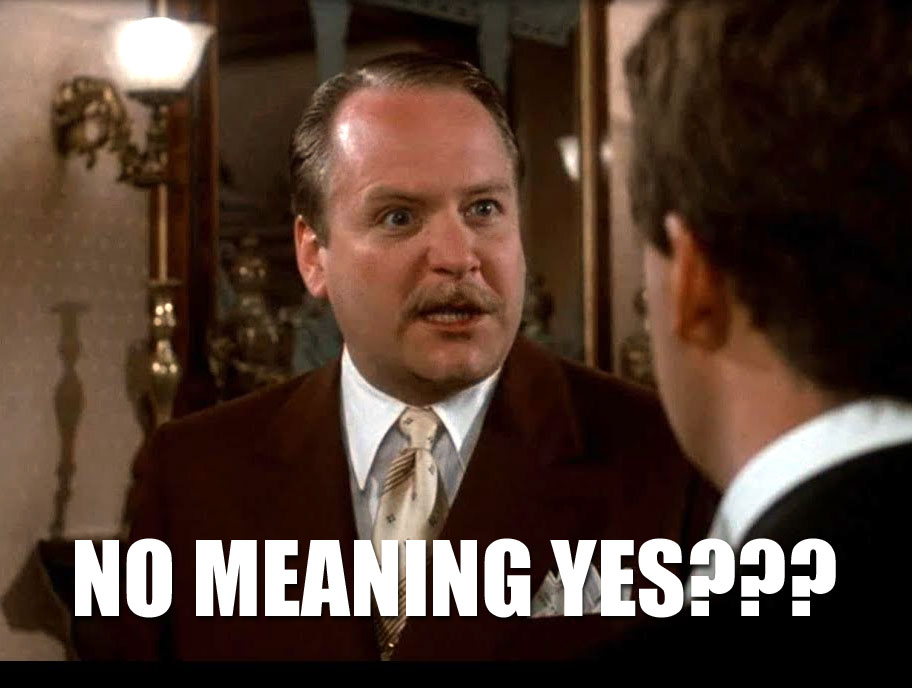Except it literally does.
The oldest known record of that use is from the 1700s, and prescriptivists didn’t start whining about it in any significant amount until 100 years ago.
Upvoting because you are technically right, even though I will never accept that as the definition of literally - and I know this literally puts me in the wrong.
A very easy way to square all this (and what I assumed everyone understood to be going on before I ever heard of this discourse) is that people are just using exaggeration for emphasis (a very common rhetorical tactic).
Of course people aren’t saying it’s literally thing-they’re-referring-to but that it has so much in common that it’s “practically” almost exactly that thing.
I feel like people overcomplicate what needn’t be complicated, sometimes (like people hallucinating a “fourth-person” pronoun to explain a convention perfectly already provided by current linguistical constructs).
You’re referencing some rando uttering a word and claiming that its early use makes it valid, like people were perfect speakers back then?
Who’s the prescriptivist now?
They didn’t just utter it. They wrote it down, thus making it canon to language lore. 😌
The notion that “just because someone lived a long time ago, they must have been backwards, ignorant, or stupid” is one that needs to die a loud and public death. It is that line of thinking that leads people to believe that aliens built the Pyramids, Stonehenge, etc. because they are certain that folks back then weren’t clever enough to move large rocks about.
He is a fortunate man to be introduced to such a party of fine women at his arrival; it is literally to feed among the lilies.
– The History of Emily Montague, by Frances Brooke, 1769 (emphasis: mine)
The use in the figurative sense isn’t valid merely because of “some rando uttering a word” a long time ago. It is valid because it continued to be utilized with that meaning for the next 250 years and is still used and understandable in that sense to this day.
Citing some historical rando is as descriptivist as it gets.
First Known Use 15th century, in the meaning defined at sense 1
You’re own source states the opposite
The opposite of what? I’m curious how you interpreted my words, because that quote does not contradict any claim I intended.
I understood you claimed that the first known use of ”literally” would have been used as ”figuratively”, but in the link it says it was used in a literal sense. But I’m tired so I might have gotten something wrong.
Oh, no. I only meant that the use in the figurative sense was more than twice as old as any concerted movement against it. And even that movement is “old”. This isn’t some skibidi Ohio dreamt up by “kids these days”. It has a well established pattern of usage.
I see, that makes sense. Thanks for the clarification!
“used in an exaggerated way to emphasize a statement or description that is not literally true or possible”

Correct! It’s called a contronym, it is such a normal thing in language that they made a word for it.
People are always saying English is weird. Being willing to die on a hill for eccentric word use is one reason lol.
Literally literally means literally.
It also means “in effect; virtually”.
Literally.
Shower thoughts = casual observations about shit everyone should know.
People say it’s freezing outside, but it’s a few degrees above water becoming a solid. What gives?
They say they’re starving even though they just haven’t eaten all day.
People need to follow the rules when it comes to words or else we descend into chaos. It’s literally a highway to hell!
Those are exaggerations, not comparisons.
If it’s 32° it’s literally freezing outside(literally), 36° freezing outside (hyperbole)
Sounds like something that literally Hitler would say.
I don’t think he spoke enough English to understand what “literally” means, so I’d guess not.
He was a regular Nazi, so why wouldn’t he be a grammar Nazi as well?
What a hot take.
English is fluid. Give it time.
Sure, but you can literally use “literally” figuratively and people will still know what you mean
That’s what the word “figuratively” is for. You don’t say fat to mean figuratively thin.
The way I see it is that language inevitably evolves over time. Not all of those changes make sense to everybody, and not everybody likes them, but that they will keep occurring will stay true as long as language is what we use to communicate.
It’s all approximation anyway, so I just don’t think it matters very much as long as we understand each other. To each their own though.
But if something is “literally like” alleging else, does that not just equate to similar too since the literal definition of similar is to be like something else?
Mere similarity implies incomplete equivalence.
Never thought about it like that actually, that’s good.
Yes, something that’s like something else is also literally like it, because literally emphasizes that it’s really true. But “I literally died laughing” is wrong unless you’re actually dead.







